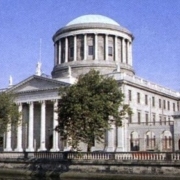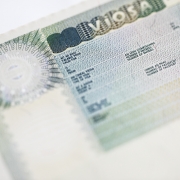Clients of Berkeley Solicitors win their judicial review case before the High Court in N.I. V MJE 2022 / 442 /JR
Berkeley Solicitors would like to congratulate our clients who have received a positive judgement from the High Court today in their Judicial review proceedings.
The applicant, a minor Somali citizen, issued proceedings through her aunt and next friend challenging a decision of the Minister for Justice to refuse the her visa appeal to join her aunt and family in Ireland following the death of both her parents in Somalia.
We argued on behalf of our clients that the Minister acted in breach of fair procedures on a number of grounds. In refusing to grant the visa, it was submitted that the Minister failed to fully consider the best interests of the applicant in light of her particularly vulnerable position as a 14-year-old orphan residing outside her country of origin, without familial support.
It was submitted by the Respondent that the Applicant had failed to show sufficient evidence of a familial link between the applicant and the sponsor. Furthermore, it was submitted that the sponsor did not prove that she ‘is, or ever had been, socially or financially dependent on the sponsor’. The Minister also considered that the adoption of the Applicant was not recognisable under Irish law in light of the fact that there is no bilateral treaty in existence between Ireland and Somalia governing adoptions and similarly, that Somalia is not a party to the Hague Convention.
As a result, the Minister held that neither Article 41 of the Constitution nor Article 8 of the ECHR protecting the right to family life were applicable to the Applicant and the sponsor.
In setting aside the decision of the Minister, Mr Justice Barr held that the decision maker erred on a number of grounds in failing to recognise that a 14-year old orphan, ‘without any family support in a very unstable country, was not in an extremely vulnerable position, such that it constituted exceptional circumstances’.
Acknowledging the importance of family reunification in situations where individuals had fled persecution, Justice Barr held the Respondent was wrong in concluding that ‘there was no documentary evidence of familial relationship between the applicant and sponsor’. It was accepted that a number of important documents to this effect had been submitted by the Applicant, including a court order transferring guardianship of the application to the sponsor.
Furthermore, the emphasis placed by the decision maker on the issue of adoption as a basis for refusal, ‘an argument that was never put forward by the applicant, nor was put to her for comment’, was held to have breached the applicants right to fair procedure, rendering the decision ‘fatally flawed’.
Referring to the case of Tanda-Muzinga v France (2260/2010), the following passage was highlighted by the Court:
‘there exists a consensus at international and European level on the need for refugees to benefit from a family reunification procedure that is more favourable than that foreseen for other aliens, as evidenced by the remit and the activities of the UNHCR and the standards set out in Directive 2003/86 EC of the European Union’.
It was highlighted by the Court that this obligation is envisioned under Irish law in s.56 of the International Protection Act, 2015. Similarly, in line with our duties under Article 10.1 of the Convention of the Rights of the Child, that ‘applications by a child or his or her parents to enter or leave a State Party for the purpose of family reunification shall be dealt with by States Parties in a positive, humane and expeditious manner’.
Significantly, it was held that the Appeals officer hadn’t sufficiently considered ‘the extremely adverse consequences’ the refusal decision represented for the applicant. As a result, the Court held that the decision clearly constituted ‘exceptional circumstances of a humanitarian nature, which would have justified a departure from the financial requirements of the policy’.
The Judgement will be available on the High Court webpage in the coming days.
Our office wishes to congratulate our clients on this positive development in their case today and would also like to thank our counsel for their dedicated work on this case.


